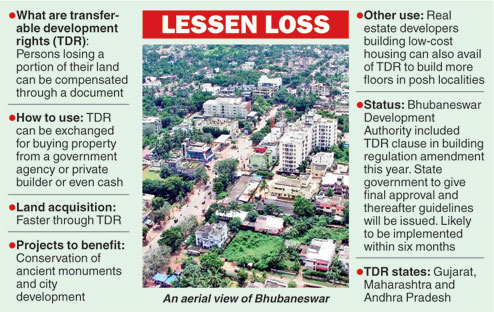 |
| As a reinvention of space and theatre, Creative Commune staged American playwright Tennessee Williams?s The Glass Menagerie and A Streetcar Named Desire on the Landmark rooftop on Friday. Blending music from the Fifties, links with the Hollywood film versions and pop art, the production was directed by Trina Nileena Banerjee. Picture by Aranya Sen |
With such a strong portfolio behind them, including Harold Pinter, Neil Simon, James Saunders and Christopher Durang, why must Ace Productions settle for inferior, imitative material like Anything but Love! (at Birla Sabhagar)? The very fact that they refuse to declare the dramatist?s name alerts us to the suspect nature of the endeavour, a cleverly masked Indianisation of Barry Creiton?s Double Act, itself an Australian take-off on Durang?s Beyond Therapy.
It has virtually the same situation and characters: a divorced couple reuniting after a chance meeting in a restaurant, and relating their inner feelings to us through sessions of therapy with unseen shrinks. The Indianiser lacks not only Durang?s dialogic finesse but also his violently satirical jabs at American sexuality and obsession with psychoanalysis. Director Vikranth Pawar turns it into just a series of sexy jokes, reminding me of some of the worst episodes of Sex and the City.
A sad state of affairs for the stars, Mandira Bedi and Samir Soni, both of whom give of their best, but in a waste of time and talent. They should have exercised their better judgment and rejected this obviously deficient script. Bedi in particular, who knows the difference, having acted in Durang?s Laughing Wild.
In contrast, the local Theatrecian?s performance of Chekhov?s Marriage Proposal (at Saturday Club) shows how much more subtly a master dramatist can treat the same subject of war between the sexes. It is one of Chekhov?s classic 19th-century one-act plays, where a man comes to his neighbour to ask for his daughter?s hand, and the would-be courtship degenerates into a massively farcical row, leading to the hero?s near-death experience. Roshni Bose excels as the girl, slicing the air with her arms and pitching her voice high in her flights of fury. Calcutta?s latest comic duo, Deborshi Barat and Dhruv Mookerjee, plays up the parts as wooer and father respectively.
The men returned, partnered by Ronjini Chakraborty, in two even shorter contemporary playlets by David Ives, which followed Chekhov rather anticlimactically. Philadelphia does not rise to the occasion at all, while Sure Thing has a clever idea but becomes predictable after some time. My recommendation is that Theatrecian stage a full Chekhov evening instead, perhaps adding The Wedding and The Anniversary as companion pieces.
Theatrecian also visited Oxford Bookstore with Pinter?s Victoria Station and a discussion to mark his Nobel Prize. A lighter work by Pinter, it receives full-tilt comic treatment from the aforesaid Mookerjee-Barat pair.
The former enacts a taxi dispatcher on radio and the latter a recalcitrant cabbie least interested in taking orders. One of Pinter?s rare plays that could easily adapt into Calcutta life, retitled Howrah Station! We see so many taxi drivers like Barat that it would be a sure-fire hit.
Beyond borders
An extension of our group theatre is how director Meghnad Bhattacharya describes the first South Asian Theatre Festival. Organised by Epic Actor?s Workshop and Mrittika Inc, it will be held from July 14-16 at George Street Playhouse, New Jersey.
Founded by Dipan Ray, the Epic Actor?s Workshop has for nearly a decade provided theatre-loving NRIs the essential link with the Calcutta stage. Mrittika, represented here by Purno Bhattacharya, propagates the language and cultural heritage of India and Bangladesh.
To showcase creative excellence and strengthen community bonds, eight plays in Bengali, Hindi, Marathi and Gujarati will be staged. To vault the language barrier, English transcriptions of the dialogues will be displayed on a cyclorama at eye-level.
Meghnad Bhattacharya and Bibhas Chakraborty are two of the directors from India, Pakistan and Bangladesh invited to work with groups from New York, Toronto, New Jersey, North Carolina and Washington DC.
Chakraborty will be taking actors from the Epic Actor?s Workshop through a production of Rabindranath Tagore?s Raktakarabi. Having earlier directed the Epic in Chaak Bhanga Madhu and Bolidan, he says the actors there may lack technical know how but not dedication or passion.
Bhattacharya, who has directed Adab and Karnabati in the US, agrees. He is to direct Gyan Brikkher Phol (staged in the mid-80s in Calcutta) with Toronto-based Bangiya Natya Parishad.
Ajit Rakshit of New Jersey, a spokesperson for the organising team, rues that the audience for Bengali plays remained restricted to NRIs. ?Perhaps there?s a need to rethink the choice of plays.? But Chandan Sen, who leads the technical team for Epic and several other groups, points out that the play Nuraldeener Shara Jiban involving Indian, Bangladeshi and American actors, won rave reviews and drew Americans in droves during its two-week run at New York?s 2nd Avenue.











